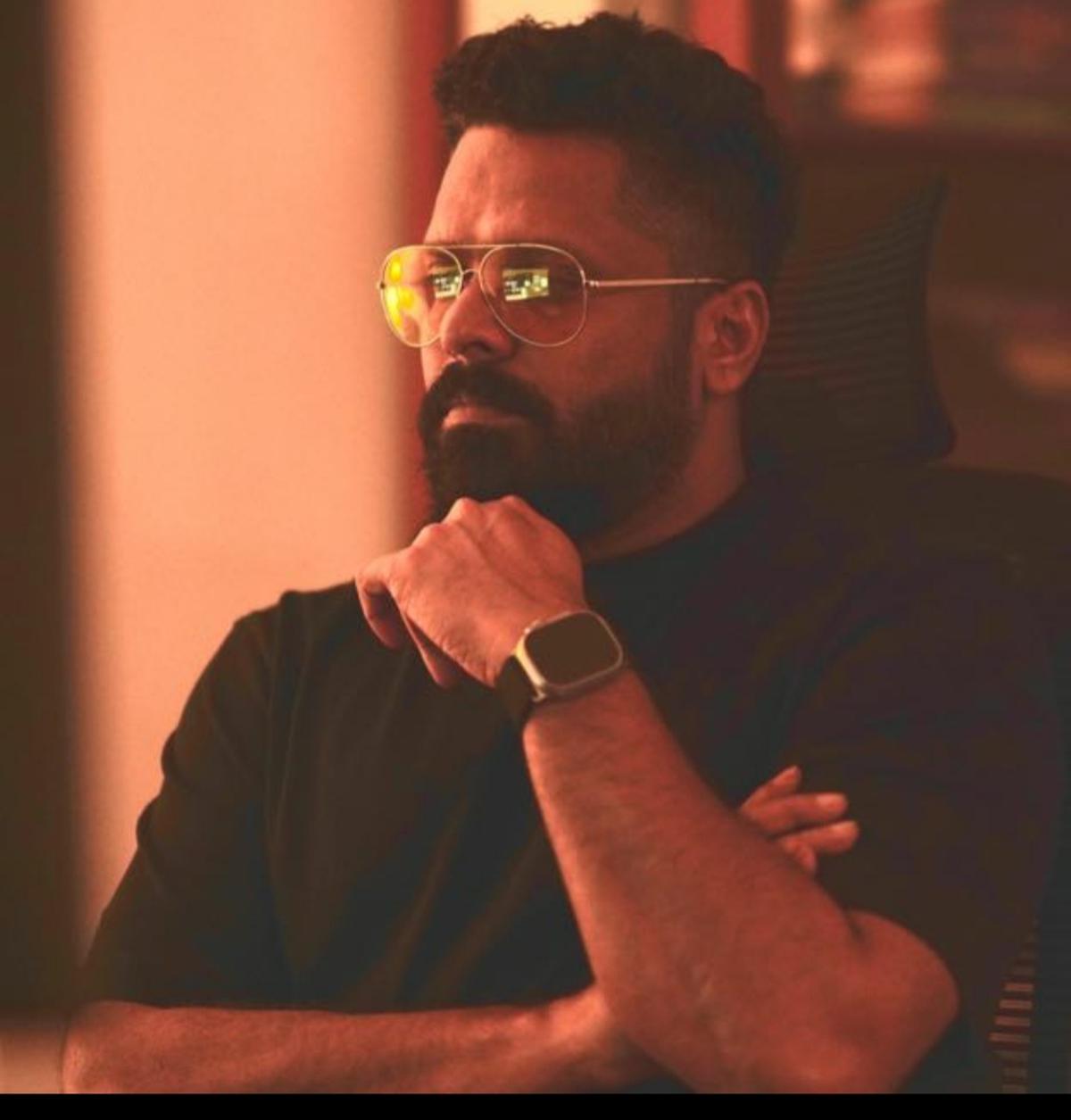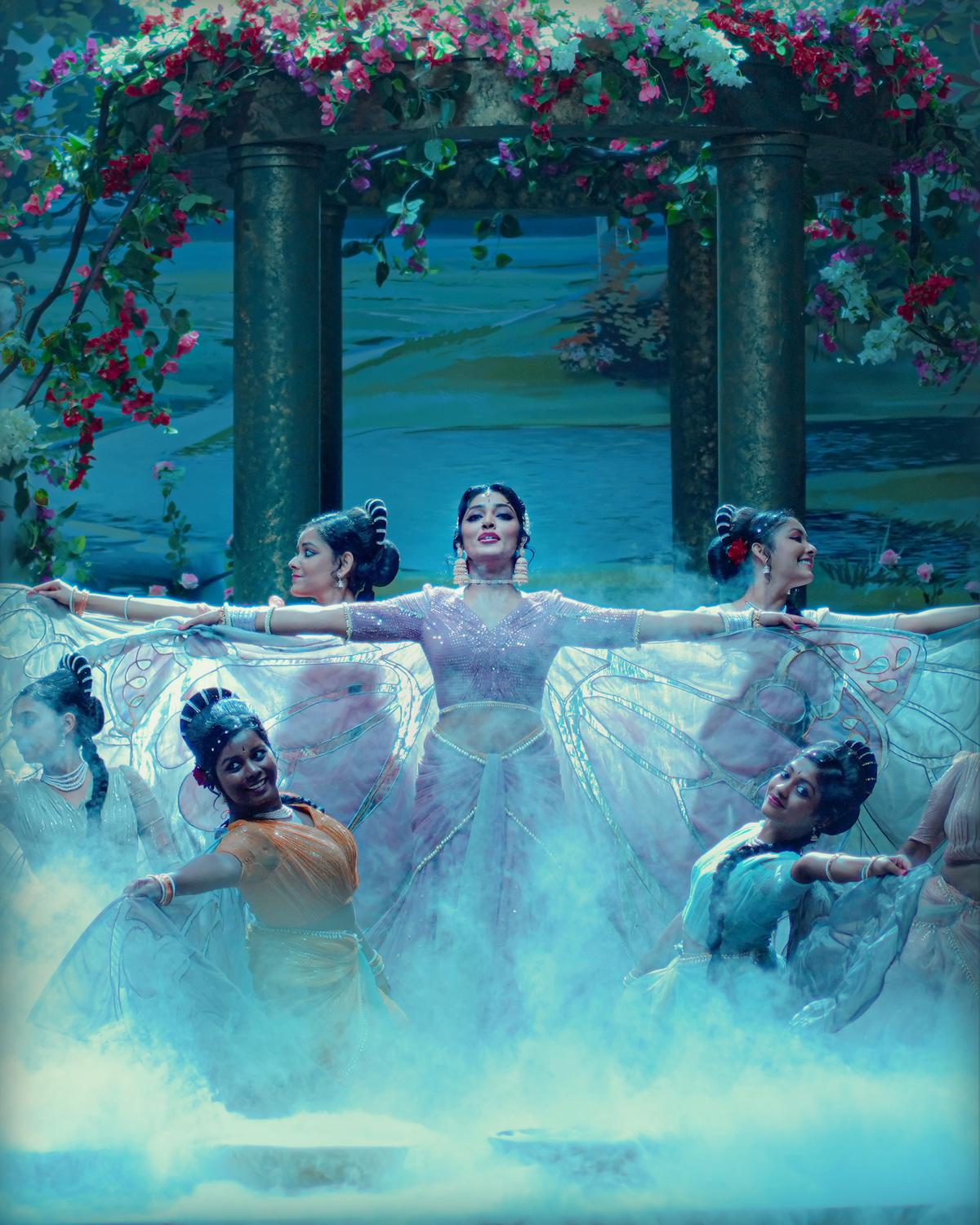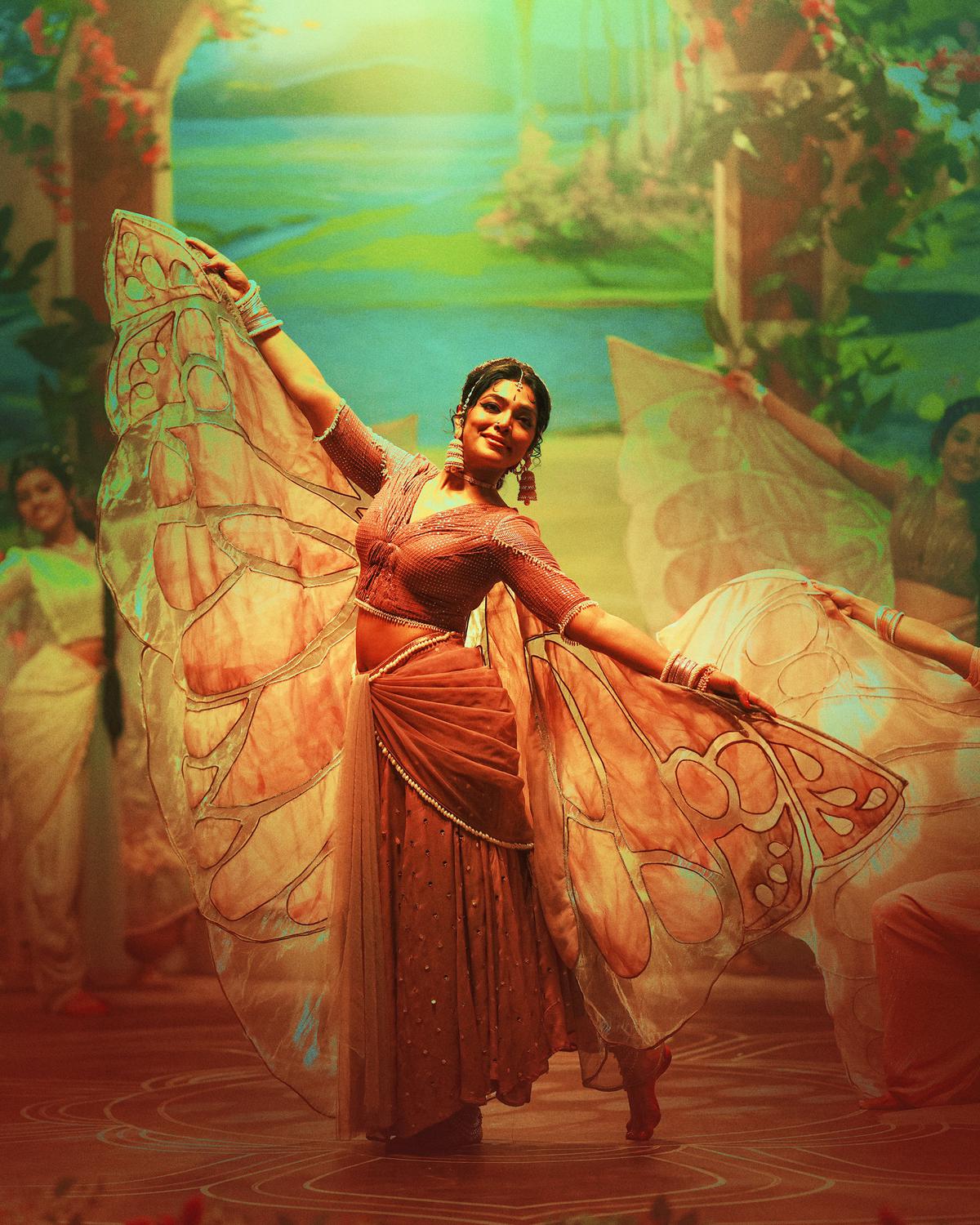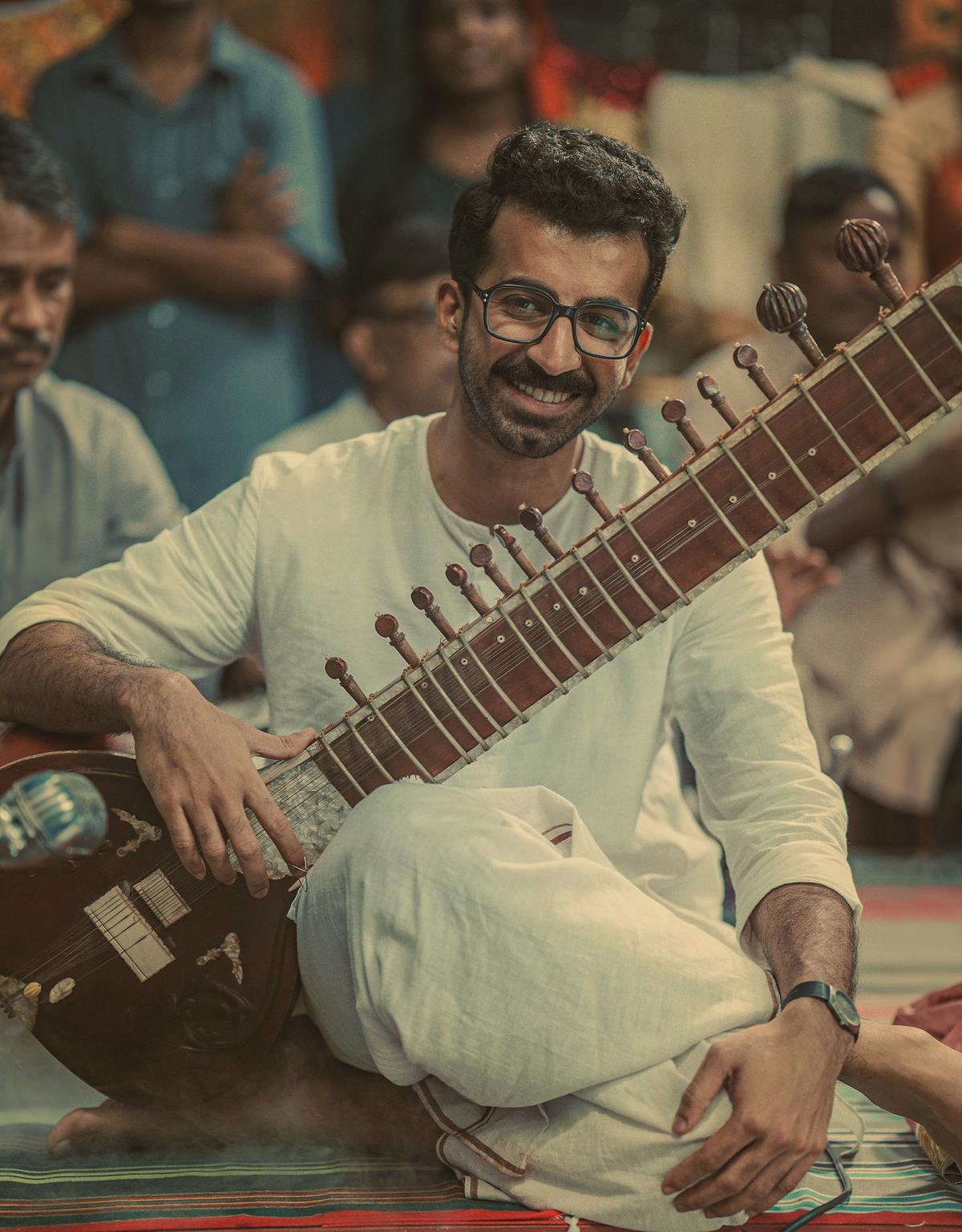A palatial but desolate house bathed in moonlight and surrounded by trees was a poster that announced the remake of the classic Bhargavi Nilayam (1964).
Aashiq Abu knew what he was taking on when he decided to remake Bhargavi Nilayam. The film, the scenes, the dialogues, the characters and, especially, the soulful songs have stood the test of time and have a special place in the hearts of Malayalam filmgoers. Yet, he decided to go ahead with Neelavelicham, the original title of Bhargavi Nilayam. Incidentally, it is the only screenplay written by beloved Malayalam writer, Vaikom Muhammad Basheer.
Tovino Thomas in Aashiq Abu’s Neelavelicham
| Photo Credit:
Special Arrangement
Bhargavi Nilayam, considered the first horror-thriller in Malayalam cinema, was a blockbuster when it was released on November 22, 1964.
Says Aashiq, “Into the cinematic universe of that time with its social dramas, romance and simple humour, Basheer’s contribution was a horror-romantic-thriller with seven songs. I don’t think even today such a multiple genre-blending script exists. As a filmmaker, I find this kind of genre-blending exciting!”

Film director Aashiq Abu
| Photo Credit:
Special Arrangement
Aashiq says there were several reasons for taking on “this huge responsibility” of remaking a classic. “In my student days, in small libraries near my home, which had about 300 books or so, I had read the works of leading Malayalam writers such as SK Pottekkat, Radhakrishnan and Basheer among others. I had read the short story ‘Neelavelicham’. It was a story that stayed in my mind. I had no idea it was the story of Bhargavi Nilayam.”

Rima Kallingal in a dance sequence from the film
| Photo Credit:
Special Arrangement
Later, while Aashiq was working as an assistant director, there were reports of a remake of Bhargavi Nilayam with Mohanlal and Mammootty, which was supposed to be helmed by stalwarts such as litterateur MT Vasudevan Nair and the late John Paul. However, those reports were followed by silence. It was around that time that Aashiq watched Bhargavi Nilayam.
The story of an author coming to live in a haunted house, his friendship with a ghost and his efforts to narrate the story of an ill-fated romance mesmerised Aashiq. It was then that he realised that the story was based on ‘Neelavelicham’, the short story that he had read years ago. Years later, he happened to read the 16th edition of the screenplay of Bhargavi Nilayam, published by DC Books.
Tovino Thomas in Aashiq Abu’s Neelavelicham.
| Photo Credit:
R Roshan
“That was when my enthusiasm increased manifold. That screenplay, written in 1964, had colours and sound incorporated in it — the rustle of dry leaves, the scraping of heavy padlocks, creaking doors and even the sound of creatures in that vast compound were included in that detailed screenplay. I read it with great enthusiasm, especially the opening scene. I was astonished by the richness of the screenplay,” explains the director.
Bhargavi Nilayam had charmed viewers on account of its many dimensions. What attracted Aashiq was the sounds and colours specified by Basheer in the screenplay. “As Bhargavi Nilayam was a black-and-white film, even the title of Neelavelicham could not be envisaged in the film. Perhaps that was why it was renamed Bhargavi Nilayam. However, the specification of detailed colours and soundscape amazed me. I wondered how would it be if it were made today.”
Tovino Thomas as the unnamed author in Aashiq Abu’s film
| Photo Credit:
R Roshan
For him, the beginning of each film is marked by anxiety and challenges. Although the making of Neelavelicham also involved anxiety, hard work and sleeplessness, there was excitement in equal measure. “Translating a classic text like this into the visual medium was exciting and challenging too.”
Even the casting took time. The 1964 film, directed by A Vincent, was headlined by Prem Nazir, Madhu and Vijaya Nirmala. Rima Kallingal plays the main role of Bhargavi. Initially, Prithviraj and Asif were considered to play the male protagonists. However, date issues cropped up and eventually Aashiq zeroed in on Tovino Thomas and Roshan Mathew. Soubin Shahir’s busy schedule ruled him out and that role went to Shine Tom Chacko.

Rima Kallingal in ‘Neelavelicham’
| Photo Credit:
Special Arrangement
In Neelavelicham, Tovino, a huge Basheer fan who has read many of his works, plays the author. “Since Basheer has picturised himself as the author, it has been said that Basheer was keen that the author’s character be essayed by a good-looking actor with a good physique. In the 1964 film, Madhu, one of the handsome actors of those days, had enacted the role of the nameless author,” points out the director.
“Basheer was a wrestler who took care of his physique. So, he was quite particular about the actor who played the role.”
Filmed by DOP Gireesh Gangadharan, the iconic music and songs were scored under the baton of music director Bijibal and Rex Vijayan.
“As I had taken on this huge challenge, who else could I turn to but my close friends like Bijibal and Shahabaz Aman. The immortal songs in the film, written by P Bhaskaran and originally scored by Baburaj, required someone who had the competence, experience and the sensibility to do it. It needed a lot of courage. In Kerala, the only person I knew who could fit the bill was Bijibal,” maintains Aashiq.
He adds that even experienced composers and singers such as Shahabaz and KS Chitra were hesitant to touch the songs but “they were also enthused about rising to the challenge. We have all worked hard. So, it can’t be too bad,” laughs Aashiq.

Roshan Mathew as Sasikumar in ‘Neelavelicham’
| Photo Credit:
Special Arrangement
The choreography of a song, performed by Bhargavi, one of the visual delights in the film, was by Sreejith, who has shared the stage with Rima in many of her dance performances.
He credits costumer Sameera Saneesh, art director Jothish Shankar and the entire team for the success of the songs and dance that have been trending on social media.
As the film releases on April 20, Aashiq says that he hopes a new generation of viewers will take this film to heart. “I am waiting for people to see it and enjoy it.”
For all the latest Entertainment News Click Here
For the latest news and updates, follow us on Google News.
